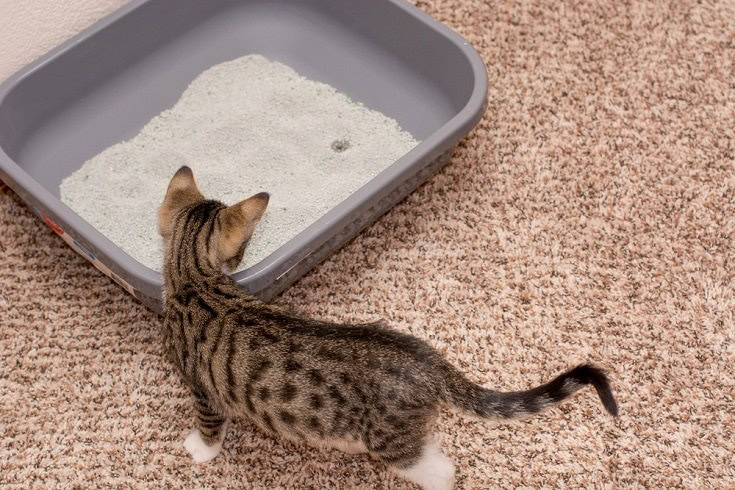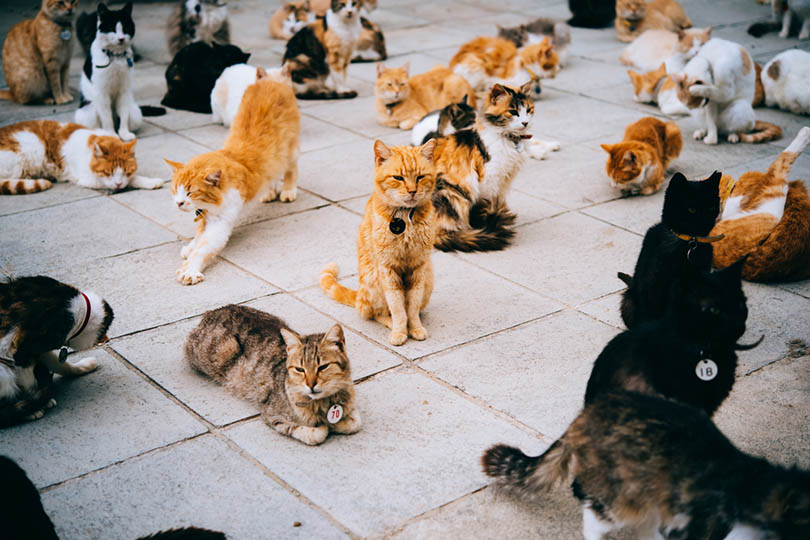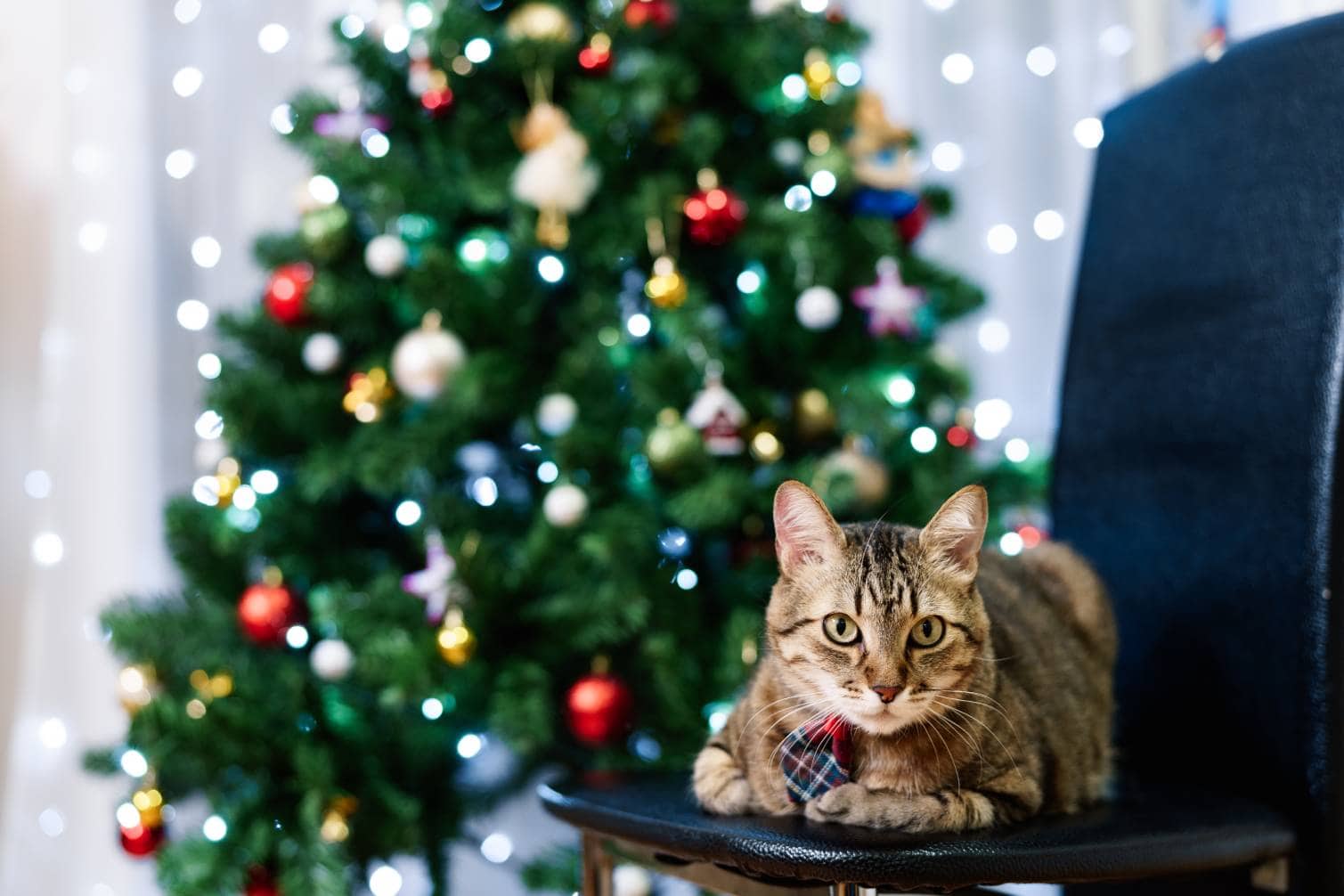VET APPROVED

The information is current and up-to-date in accordance with the latest veterinarian research.
Learn more »Most cats will use a litter box appropriately when a few requirements are met. Cats are generally known to be quite fussy, so it may take a while before they are comfortable with using their litter box and are able to use it properly. A cat peeing outside the litter box is a common complaint.
There could be a variety of reasons for this, like behavior problems, not knowing how to use the litter box, or cats being fussy with their hygiene, as most cats do not appreciate a dirty litter box, especially when it has not been cleaned for quite some time. Luckily, most of these problems can be solved depending on the reasoning behind this frustrating behavior.

The 12 Reasons Your Cat May Be Peeing Outside Their Litter Box
1. Marking Their Territory
Cats urinate or “spray” to mark their territory. This is especially common behavior if there are new pets in the house or if a feral cat decides to pay an unexpected visit into your garden. Territory marking is more common in unfixed cats (unspayed or unneutered). Before they display this behavior, you will observe them rubbing the sides of their bodies on objects around the house, leaving behind their scent. They will generally spray on vertical surfaces.
- Solution: Getting your cat fixed should stop this behavior. Make sure to secure your property so feral or your neighbor’s cats do not pay a surprise visit to your home.
2. Dirty Litter Box
Cats prefer a clean litter box. A dirty and unhygienic litter box will deter them from using it. This is common if multiple cats use the same litter box and it is not emptied appropriately.
- Solution: Make sure to stick to a strict litter box cleaning schedule, depending on how many cats you own. Replace the litter as often as necessary.
Hepper Advanced Bio-Enzyme Pet Stain & Odor Eliminator Spray is our favorite all-purpose cleaner for pet messes. It permanently lifts the very worst stains and odors, making clean up and accident prevention a breeze. Hepper offers a 100% guarantee, which is a great bonus! Learn more about it here.
- ADVANCED ENZYMATIC CLEANER - Penetrates the most stubborn smells and stains at the deepest molecular...
- FOR ANY MESS, ON ANY SURFACE - This pet odor eliminator cleans your carpets, floors, furniture,...
- FRESH, NATURAL ODOR - Our unique formulation doesn't rely on dangerous or unpleasant chemical...
At PangoVet, we’ve admired Hepper for many years, and decided to take a controlling ownership interest so that we could benefit from the outstanding products of this cool cat company!
3. Not Sure How to Use the Litter Box
If you have recently acquired a new kitten or cat, or if you changed for a different kind of litter box such as covered or automatic boxes, they may not know how to use their litter box properly, so they will eliminate their waste in undesired areas.
- Solution: Litter box training will be the most efficient way to eliminate this behavior. Place their waste in the litter box and the scent will attract them to use the box to eliminate their waste. Do this every time they leave accidents around the house and they should start to understand its use.
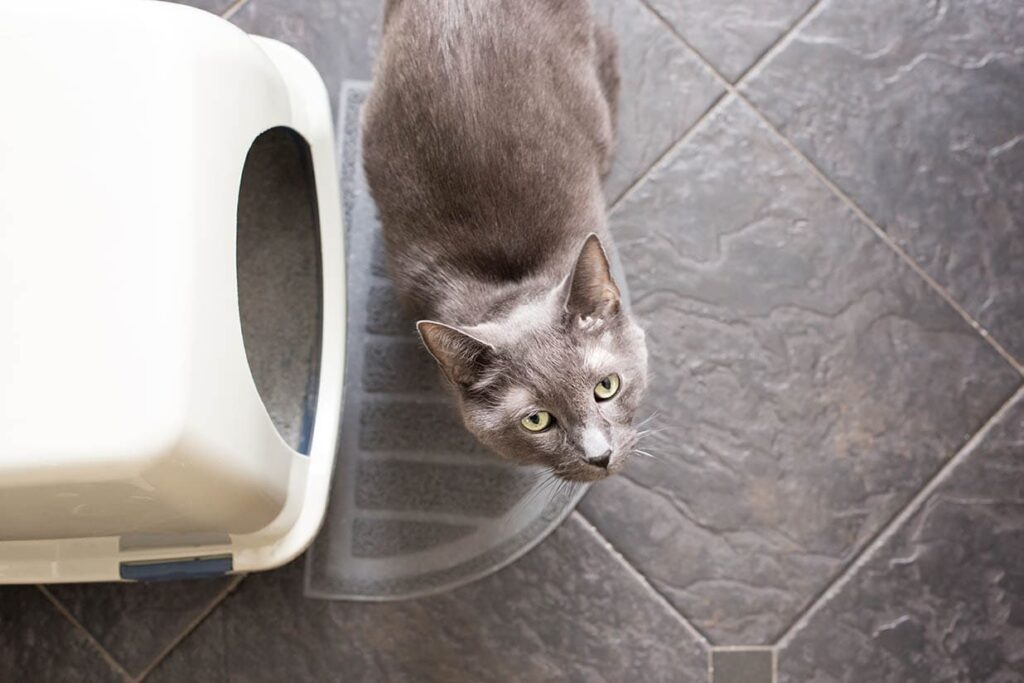
4. Urinary Tract Infection (UTI) or Feline Lower Urinary Tract Disease (FLUTD)
A cat with a UTI or FLUTD1 may have trouble controlling urination and will have unintentional accidents around the house. They may pee in small amounts and will have pain because they cannot empty their bladder.
- Solution: An immediate vet visit is required; your vet should prescribe your cat medication to help eliminate the infection in the case of UTI, or a management plan for Feline Idiopathic Cystitis (FIC), or the appropriate treatment for the primary causes of FLUTD. Diagnosis is the first step.
5. Stress
An emotionally stressed cat will not display their usual behavior and will deposit their waste around the house. Stress can make them too depressed to use their litter box and they will also display strange behaviors such as hiding most of the time, acting skittish, sleeping most of the day, or not showing an interest in their toys or food. All sorts of things can cause them to become stressed.
- Solution: The first step is to investigate what is triggering your cat’s stress and make a plan to eliminate it. Teach your children to respect your cat’s boundaries and show them when it is appropriate to interact with the cat. You can also try adding in synthetic pheromone diffusers or even some calming supplements or medications as prescribed by your vet.
6. Kidney Injury
Acute kidney injury can result from consuming something toxic or poisonous to cats. They will have abdominal pain and trouble peeing or controlling when they will pee. Check around the house or garden to see if they may have consumed a toxic human medication or plant.
- Solution: This is a rare yet serious illness that requires veterinary treatment as soon as possible. Kidney injury can be a fatal case if not treated immediately. Get rid of toxic plants in your house or garden.
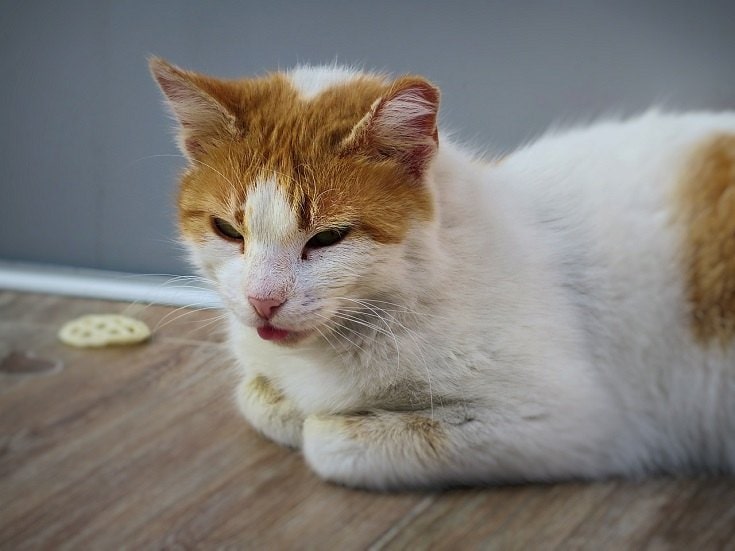
7. Kidney Disease
Kidney disease can present acutely or chronically when cats lose the integrity and function of their kidney tissue. It is a common medical issue with cats, especially as they age.
- Solution: Your veterinarian will need to perform a series of tests to determine the kind of grade of the kidney loss. This disease has no cure, so a management plan that includes a special diet and medication to slow the disease progression will have to be implemented.
8. Environmental Changes
A sudden change in your cat’s life can leave them confused and unsure. This includes moving houses, reorganizing your house, or moving the litter box from its usual place.
- Solution: Let your cat adjust to the changes and place any waste in the litter box so they know where it is and will be attracted to the smell. If you see them in the act of using your house as their bathroom, pick them up and place them in their litter box.
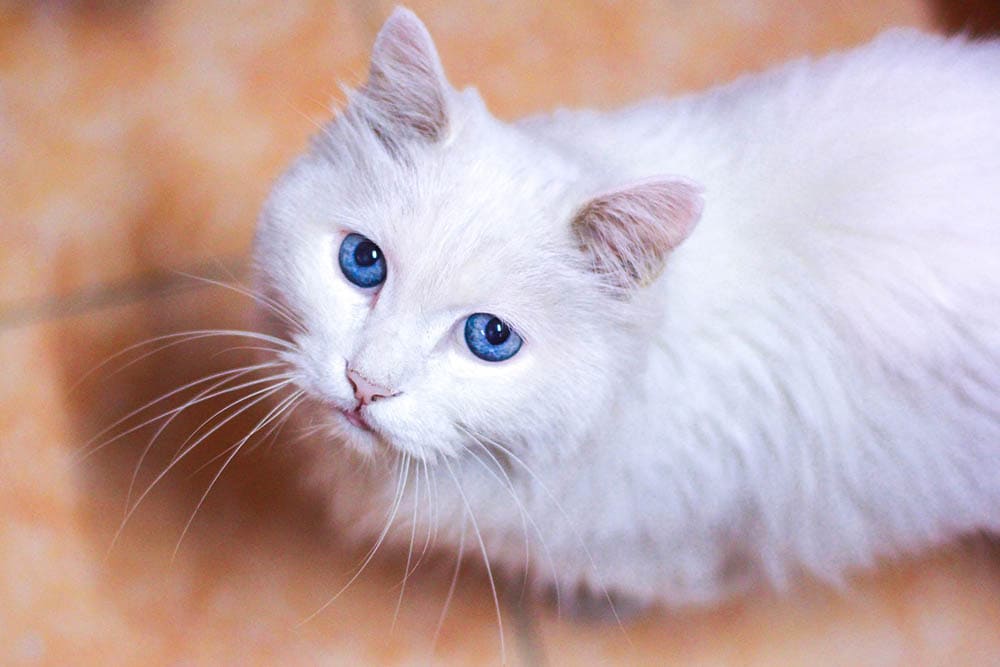
9. Discomfort
If your cat is feeling uncomfortable or is experiencing actual pain they may be averse to using the litter box. This is mainly common in older cats. Something in your cat’s environment will need to be adjusted to help prevent pain and discomfort.
- Solution: If arthritis is the cause, a vet can prescribe pain medication to help relieve some of the discomfort. Try getting a lower litter box that allows easy access if they are losing mobility due to joint degeneration.
10. Attention
If a cat feels like they are not getting enough attention from you, they may excrete their waste near you, trying to coax a reaction. If this is their only interaction with you besides feeding, they may feel like you are not interacting with them enough. They might have learned that this is how they get your attention due to past experiences.
- Solution: You should always take time out of your day to play with your cat for a bit. Likewise, you should be very mindful of what is the consequences each of their behavior gets them to avoid reinforcing undesired behaviors.
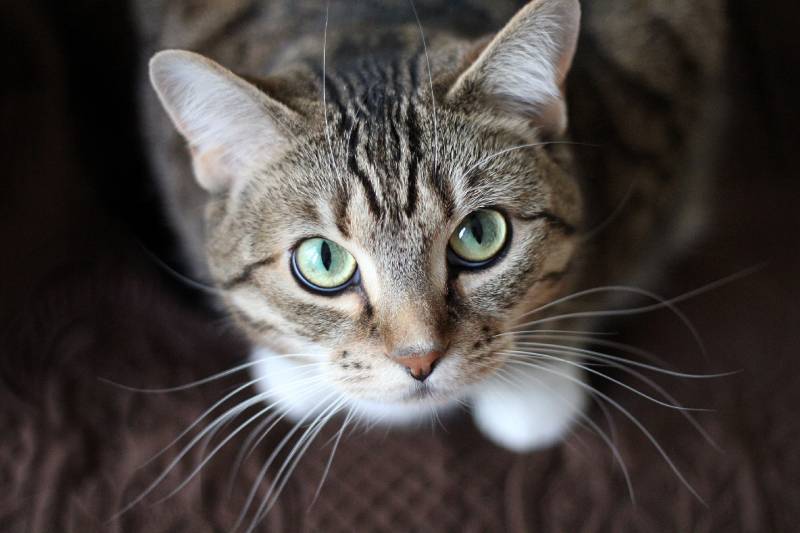
11. Candles and Oils
Cats do not like the smell of most essential oils (peppermint, lemon, lavender) as well as strong candles with the same type of scents. If their litter box is in an area where these smells are commonly used, this might deter them from using their litter box. But that is a small issue, and the biggest issue is that many of those products are toxic to cats.
- Solution: Avoid using strongly scented products in the area your cat’s litter box is in. Avoid essential oils altogether if you have a cat, as they could end up harming them.
12. Illness
If your cat is feeling ill or has stomach discomfort, injuries, or underlying health conditions, they will be in too much pain to use their litter box and may eliminate waste in the area they are currently in.
- Solution: Try helping them by moving the litter box close to where they are hanging out and make sure to take them to the vet for a check-up
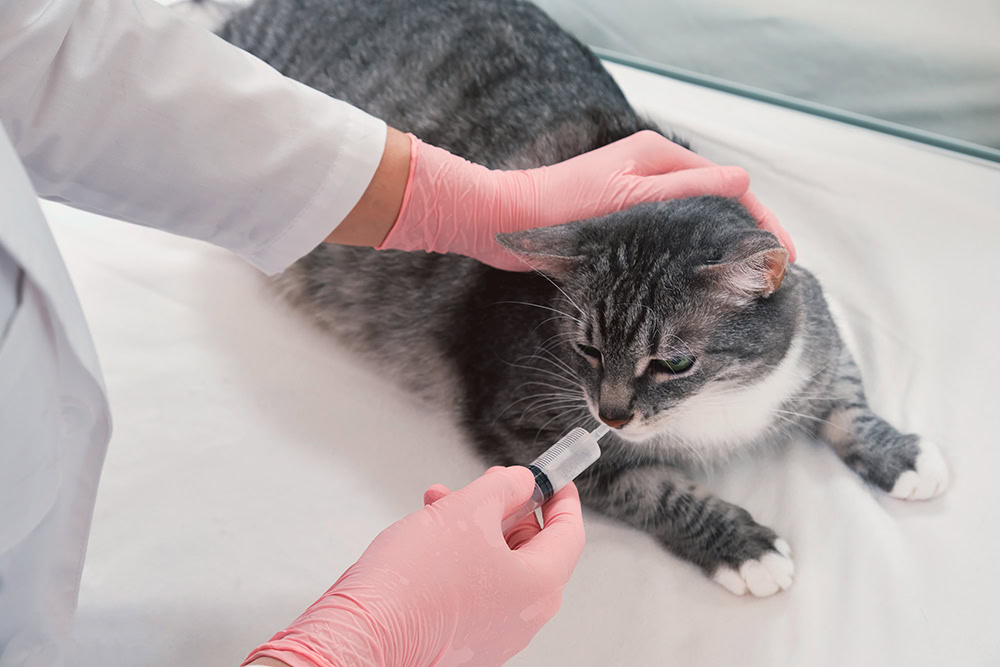

Final Thoughts
It is not a good idea to punish your cat for doing something they do not understand is wrong, as this will potentially make the situation worse and your cat may become fearful of you. Finding positive solutions is the best option. By all means, avoid these common punishments below, as they seem to be recommended online, but they have no benefits and are unnecessary.
- Sticking their nose in their waste and then shouting at them
- Spraying them with water
- Shouting and throwing items at them
- Putting them in a confined space as a time-out
Related Reads:
Featured Image Credit: Ekatsyerina Kostsina, Shutterstock
Contents
- The 12 Reasons Your Cat May Be Peeing Outside Their Litter Box
- 1. Marking Their Territory
- 2. Dirty Litter Box
- 3. Not Sure How to Use the Litter Box
- 4. Urinary Tract Infection (UTI) or Feline Lower Urinary Tract Disease (FLUTD)
- 5. Stress
- 6. Kidney Injury
- 7. Kidney Disease
- 8. Environmental Changes
- 9. Discomfort
- 10. Attention
- 11. Candles and Oils
- 12. Illness
- Final Thoughts
